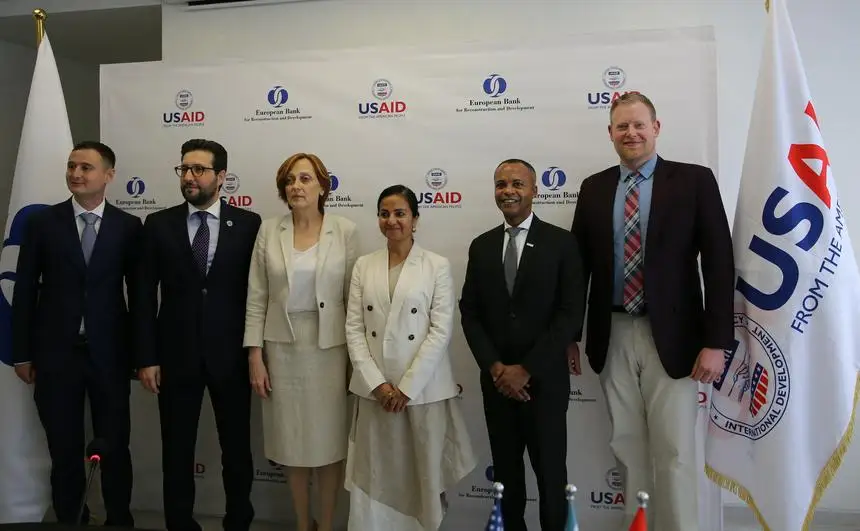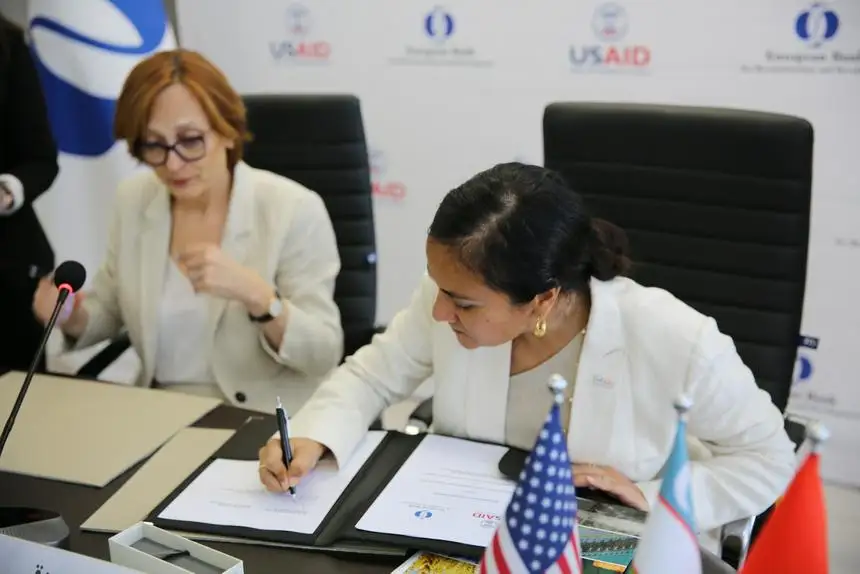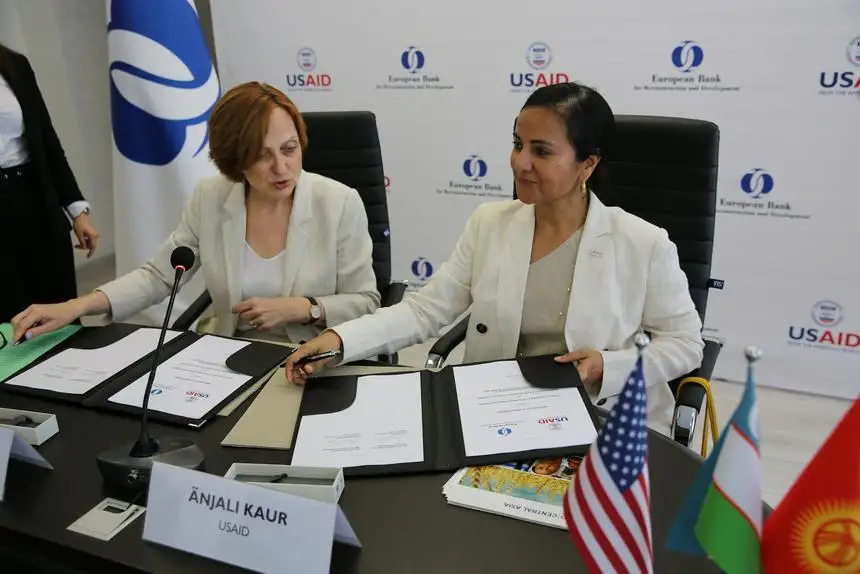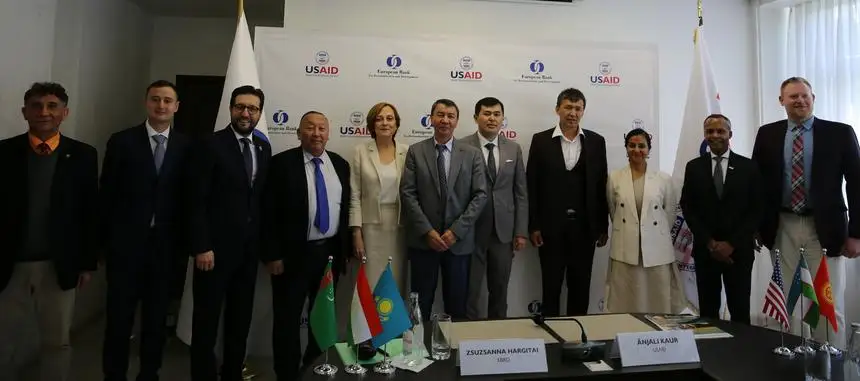USAID, EBRD sign MOU on Central Asia Partnership for a Low Carbon Future

Today, USAID and EBRD strengthened their collaboration to combat climate change by signing a Memorandum of Understanding (MOU) to increase cooperation on decarbonization initiatives in Central Asia. USAID’s Deputy Assistant Administrator for Asia, Änjali Kaur, and EBRD’s Managing Director for Central Asia, Zsuzsanna Hargitai, signed the MOU at a ceremony hosted by Vice-Rector for Science and Innovation Almaz Saukhimov at the Almaty University of Power Engineering and Telecommunications (AUPET), a long-standing local partner, who USAID is engaging to improve renewable energy curricula and technical expertise throughout Central Asia, the official website of the U.S. Embassy and Consulate in Kazakstan reads.

In her opening remarks, Kaur stated, «The United States and Central Asian countries share a common vision to tackle one of the biggest challenges of our era—the global climate crisis. With electricity production accounting for just over 40 percent of energy sector CO2 emissions globally, any efforts to mitigate the effects of climate change must include modernization of electricity systems. We are thrilled to sign this MOU today with EBRD to solidify our joint efforts to achieve a low carbon future in Central Asia.»

Through its work on clean energy, USAID is partnering with Central Asian governments and universities to expand the use of modern energy technologies in ways that increase energy access to all communities and leverage private sector investment in renewable energy to improve the lives of citizens in the region.Over the past decade, USAID has played a pivotal role in laying the foundation for an economically viable market-based regional power system in Central Asia. USAID has also strengthened regulatory frameworks to enable renewable energy development, energy efficiency improvements, digitalization of the power sector, and cybersecurity enhancements. USAID is working with a range of local and regional partners to build local capacity, facilitate cooperation, and support market-based solutions from the private sector.
###

USAID is the world’s premier international development agency and a catalytic actor driving development results. For more information, visit: https://www.usaid.gov/central-asia-regional and USAID’s Facebook page: https://www.facebook.co

